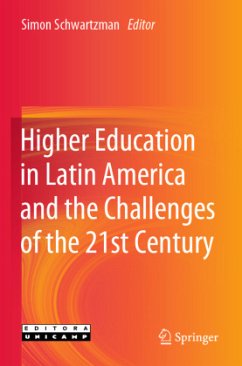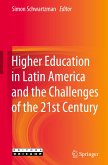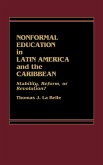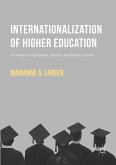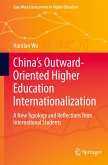This book presents an overview of the region with one of the fastest growing higher education sectors in the world. Until the beginning of the 1980s, universities were restricted to the elites in Latin American countries, with less than 5 million students enrolled in its courses. In the last four decades, however, the region went through a boom of higher education institutions and now has more than 25 million students enrolled in more than 3,800 universities - approximately 10% of all students enrolled in higher education courses in the world with four times more higher education institutions than Europe.
The boom of Latin American higher education is analyzed in this contributed volume by leading experts from the region. They discuss the causes and consequences of this massive expansion and the challenges they pose for different stakeholders such as governments, private entrepreneurs, teachers, researchers, students, policy makers, educational managers and many other social groups. Topics discussed in the volume include:
Massive expansion of tertiary enrollment in Latin America Expansion of private higher education Proliferation of new kinds of institutions, different from the classic university modelThe challenge of developing quality assurance and accreditation systems Internationalization of academic research and teaching in Latin AmericaThe challenge of integrating academic research and technological innovation
Higher Education in Latin America and the Challenges of the 21st Century will be a valuable resource for educational researchers, sociologists, political scientists and other social scientists dedicated to the study of the expansion of higher education and its social implications in different parts of the world. The book will also be of interest to policy makers s and both public and private agents interested in understanding the global dynamics of higher education.
The boom of Latin American higher education is analyzed in this contributed volume by leading experts from the region. They discuss the causes and consequences of this massive expansion and the challenges they pose for different stakeholders such as governments, private entrepreneurs, teachers, researchers, students, policy makers, educational managers and many other social groups. Topics discussed in the volume include:
Massive expansion of tertiary enrollment in Latin America Expansion of private higher education Proliferation of new kinds of institutions, different from the classic university modelThe challenge of developing quality assurance and accreditation systems Internationalization of academic research and teaching in Latin AmericaThe challenge of integrating academic research and technological innovation
Higher Education in Latin America and the Challenges of the 21st Century will be a valuable resource for educational researchers, sociologists, political scientists and other social scientists dedicated to the study of the expansion of higher education and its social implications in different parts of the world. The book will also be of interest to policy makers s and both public and private agents interested in understanding the global dynamics of higher education.

